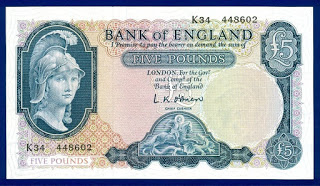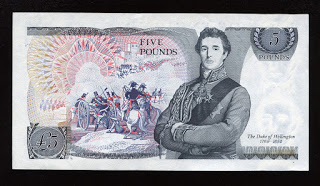I decided to separate this from the Magic Money Tree post below because I felt it distracted from it and could generate two different discussions. In that article they spoke about what money is which got me thinking about it again. This is just a very simplified view of how money works in society, but it helps me to understand it.This is my theory of what money is: that it is work in a stored, unused form which is denominated in tokens. It is really a stored claim for work, and with it we can purchase work, or products at a later date. We use money as a system for exchanging work with one another. It has no fixed value and at one store I might spend on food, but at another store I might only need to spend to get the same thing. But money does give us a rough idea of how much we
Topics:
Mike Norman considers the following as important:
This could be interesting, too:
Robert Vienneau writes Austrian Capital Theory And Triple-Switching In The Corn-Tractor Model
Mike Norman writes The Accursed Tariffs — NeilW
Mike Norman writes IRS has agreed to share migrants’ tax information with ICE
Mike Norman writes Trump’s “Liberation Day”: Another PR Gag, or Global Reorientation Turning Point? — Simplicius
I decided to separate this from the Magic Money Tree post below because I felt it distracted from it and could generate two different discussions. In that article they spoke about what money is which got me thinking about it again. This is just a very simplified view of how money works in society, but it helps me to understand it.
This is my theory of what money is: that it is work in a stored, unused form which is denominated in tokens. It is really a stored claim for work, and with it we can purchase work, or products at a later date. We use money as a system for exchanging work with one another. It has no fixed value and at one store I might spend $30 on food, but at another store I might only need to spend $25 to get the same thing. But money does give us a rough idea of how much we can get for it.
If I borrow $100 from a bank - which it creates out of thin air - I can purchase labour with it, or buy something someone has made. I am then asked to pay interest on the loan until it is repaid. This interest is a payment to the bank for running the system, which is how it gets paid for doing work.
When I have spent the $100 loan, the only way I can get the money back is by earning it. So I will have to work for someone else to get $100, plus the interest owed, and then I can repay the loan. In this way, I have exchanged work with someone else, which the money helped me to do. When I repay the loan, the bank zeros my account and the money disappears from existence.
The money always represented work, and the loan was real money as long as I did the work to repay it and did not go bankrupt. If I fail to repay the loan due to bankruptcy, ill health, or death, then the money is circulating in society with no work behind it. It is then counterfeit money.
Let's say a bank lends someone $100,000 to buy a house, but he goes bankrupt soon after and so the bank repossess the house. It looks like the bank has created money out of thin air and now owns a house - a freebie - but it doesn't, because it has to sell the house to raise the money to cancel the loan, after which the money then dissapears. If the bank doesn't do this, the $100,000 can circulate in society with no work being done for it. Plus we have an empty house doing nothing.
When someone buys the house from the bank, that $100,000 that was counterfeit is now claimed for. The new owner got the $100,000 from another bank and now he will have to work hard to repay the loan. There was $100,000 circulating in society with no work backing it, but the new owner has taken onboard a $100,000 loan, and, in effect, it is he who is now backing it with work and this means the money is not counterfeit anymore. As he works, he will get paid and slowly over the lifetime of the loan draw that $100,000 back out of society and the bank will cancel it. That $100,000 equals his work and everything gets balanced out.
Until the bank re-sold the house there was $100,000 circulating in society which was not being matched by any work being done. This means that good and services were not being produced to go along with the extra money. There is now a mismatch in society as there is more money compared to the amount of goods and services available, and this can be inflationary, but not necessarily so. If the economy is underperforming the extra money can expand the economy and then society works to produce the extra goods and services which soaks up the excess money. This is how in MMT government fiat money can be used to grow the economy without causing inflation, or the need to raise taxes.
Work is money and money is work, but as a contract, an agreement. It's a mental construct. Fiat money is real money because it is based on real work - work that will be done in the furure. The government gives fiat money it's authority and people readily accept it without question because it is 'government money' - it is legal tender. And it certainly looks important with the Queens head, or George Washington, or some other noble historic person on it.


